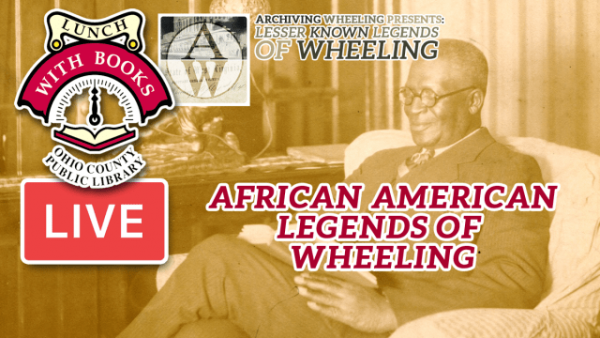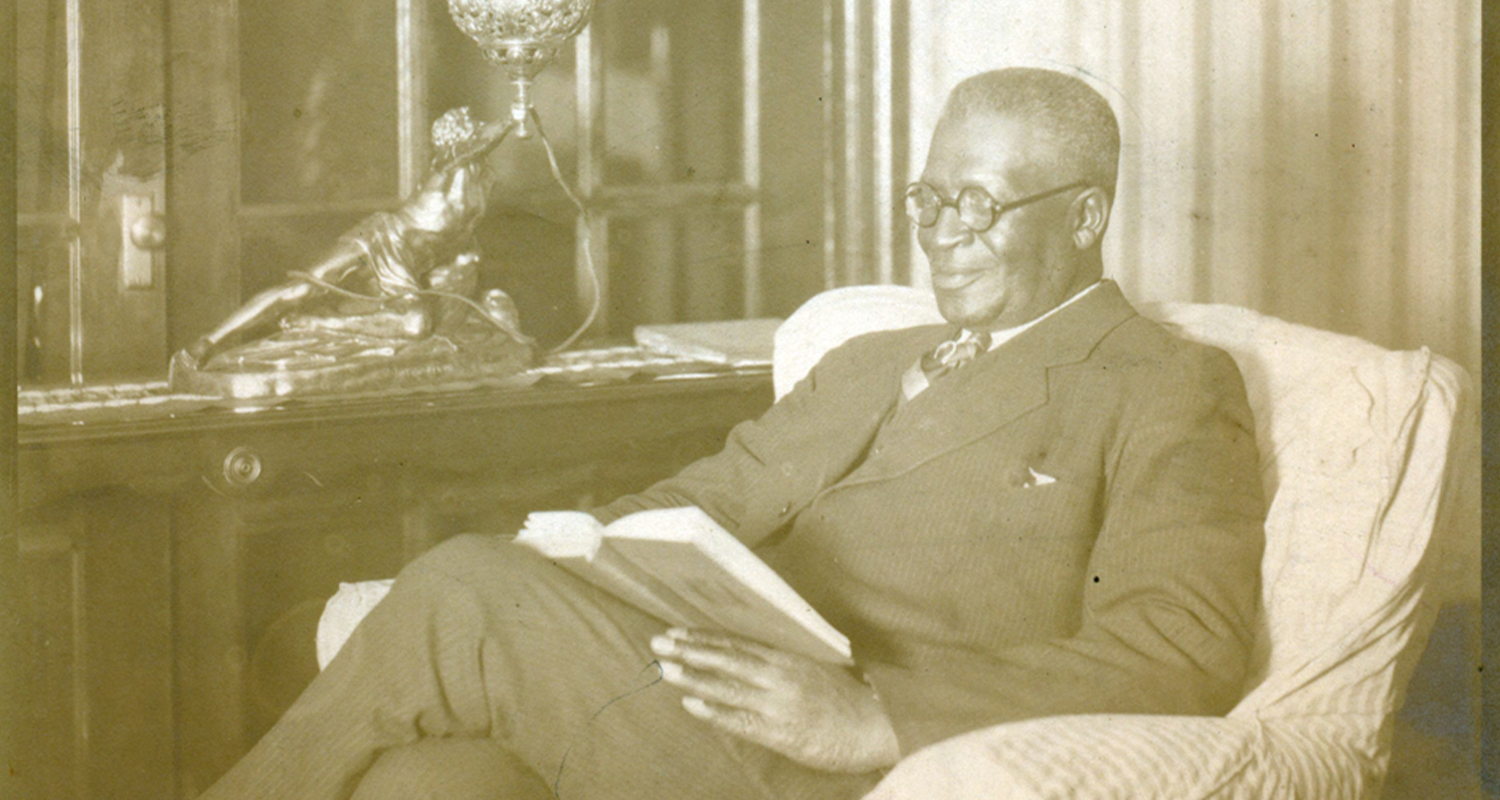As Black History Month 2021 draws to a close, we celebrate the fact that our history never ends – it marches on – and it is our duty to record it as accurately as we can. So when that record is incomplete, that duty becomes even more urgent – we must dig deeper, we must ask questions, and we must probe memory, lest we forget.
Exciting New Research and Discoveries at the Library
As part of this continuing effort, on February 2, 2021, the Ohio County Public Library presented a Lunch With Books Livestream program for Black History Month, exploring the lives, times, and achievements of nine leaders of Wheeling’s African American community during the era of “Jim Crow” segregation, including: barber and political activist Henry Boose Clemens; police officer William Alexander Turner; firefighter Ashby Jackson; attorney Harry H. Jones; physicians Boswell Henson Stillyard, Julia Katherine Pronty Davis; and Alga Wade Hamlin; dentist Robert Maceo Hamlin; and musician Will H. Dixon. This research has led to new discoveries, like how Boswell Henson Stillyard was the first black City Councilman in Wheeling—decades before Clyde Thomas (first Black City Councilman of City-Manager Government, created in 1917). Click on each person’s name to learn more about their histories and contributions on Archiving Wheeling.

These nine people, and many others we haven’t yet profiled, persevered and achieved great things, despite the obstacles imposed by what we now identify as systemic racism. They all deserve to be remembered well by their home city and state. Many of them belong in the Wheeling Hall of Fame. Instead, they are largely unknown or forgotten. But at least now, despite an incomplete archival record, we may consider the accomplishments of these forgotten people and their neglected community in the brightest light that history will allow.
Jim Crow Wheeling
Most of us learned during our school days, for example, of Wheeling’s prominent role as the host city for conventions leading to the break with Confederate Virginia and the formation of a new state during the Civil War. Indeed, Wheeling was the birthplace of West Virginia, a loyal, Union state – a northern state.
But, despite this radical move, our “northern” state compromised to retain its slaves and, unfortunately, a southern attitude regarding race relations post-slavery.
As the federal government lost interest in Reconstruction after the war, former Confederate states felt unconstrained to establish a system of laws, policies, and customs designed to keep black and white people legally separate – a system of segregation known collectively as “Jim Crow.” West Virginia joined these ex-Confederates as a Jim Crow state, and though less codified than cities of the deep south, Wheeling embraced segregation as well.
In 1936, Wheeling’s only black attorney, a man named Harry H. Jones delivered a speech on WWVA radio titled, “Wheeling’s 20th Man,” in which he detailed how black people in Wheeling had been barred from employment in local businesses owned by whites. Jones described an entirely distinct black community – one with its own doctors, restauranteurs, shop-keepers, barbers, hoteliers, and even funeral directors.
Wheeling under Jim Crow was actually two cities, side-by-side but completely separate – with the primary black neighborhood isolated mostly along Chapline Street north to Lincoln School, south to 12th Street, and east to Grandview Street.
An Incomplete Record
Despite the isolation, Wheeling’s Black community flourished. We know this only because of a rather sparse newspaper record, along with scattered primary sources like oral histories, city directories, marriage licenses, death certificates, census records, a few photographs, and other archival material.
Keeping records and histories of the Black community was not a priority for white Wheeling, and as young African Americans left town in large numbers seeking opportunity, most family records and memories either left town with them or stayed to fade away as the older generations passed. And as understandable distrust festered, no incentive to share existed.
Now, sadly, there is very little left. The Ohio County Public Library recognizes and embraces its mission and duty, through its archives and local history departments, including its story-sharing entity ArchivingWheeling.org, to restore what remains of Wheeling’s African American truth to as robust an historical record as possible. Fortunately, the YWCA kept records, most importantly those of its segregated “Blue Triangle” branch. Now a part of the library’s archive, these records have proved an invaluable starting point – a repository of leads for follow-up stories. Additional leads have come from the generosity of benefactors like Ann Thomas, William Burrus, and Kathryn Snead, who have donated records or shared memories.
We Need Your Help
Largely because of the lingering effects of segregation and racism, the history of Wheeling’s Black community has been neglected. Our goal is to create and keep as complete records as we can of the accomplishments of key personalities from Wheeling’s past.
If you happen to be a descendant of any of the people we’ve profiled, or know others who are, and have information or photos and are willing to share, please contact the Ohio County Public Library.


